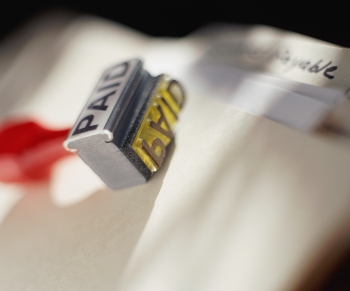The Key is Good Recordkeeping

While taxes may not be foremost in your mind this time of year, business people who pay the least tax are those who are aware of deductions throughout the year and who, long before filing their tax return, gather adequate records to back up the deductions they claim.
Business expenses are deductible if they are costs you wouldn’t have had if you didn’t have your business. While it never makes sense to spend money in order to reduce taxes, in the course of running your business, you will probably find that you have at least some of the following deductible expenses:
· Equipment and furnishings
· Dues and Fees
· Meals, Entertainment, and Gifts
· Legal and Professional Fees
· Office and Computer Supplies
· Printing and Postage
· Travel
· Seminars and Conferences
· Magazines and Books
· Maintenance and Repairs
· Insurance
· Rent and Utilities
· Telephone and Internet Fees
· Advertising and Promotion
· Uniforms and Work-Specific Clothing
· Vehicle Expenses
· Employee Wages
· Payments to Independent Contractors
You probably have other deductible expenses too, those that are specific to your type of business. In addition, you may be eligible to claim a home office. You can take this deduction if you have a space in your home that’s used regularly and exclusively to meet with clients or to do the administrative work for your business. If you claim an office-in-home, the business percentage (based on the amount of your home that’s used for business) of all related expenses (e.g. insurance, real estate tax, mortgage interest, rent, utilities, and maintenance costs) can be deducted. Even if you don’t claim a home office, you still can deduct the cost of equipment and furniture you use in your business, as well as business phone expenses.
The key, however, to being able to deduct any of these expenses is good recordkeeping. Following are some suggestions that may result in real tax savings (or at least less of a hassle in the event of an audit):
· Keep a record of every deposit made to all bank accounts. Record all money coming in, whether taxable or not. At a minimum, note in your check register the source of each deposit. The search for unreported business income is the IRS’ number one focus right now.
· Deposit all money from the business into your business account. From there, money can be transferred to your personal account.
· Use one of your credit cards just for business expenses. The card does not need to be in the name of your business. This will probably make your business recordkeeping easier, plus personal credit card interest is not deductible while business credit card interest is 100% deductible.
· Keep the original receipts from any business expenses you charge. The monthly statement doesn’t provide enough information.
· Choose one place (such as a box or envelope) to keep all business receipts. That way, you won’t forget to include any expenses on your tax return
· Your appointment book or calendar is an important part of your tax materials and should be kept with them from year to year.
· Every December 31st, write down your car’s odometer reading. If you do this, you’ll automatically know how many miles you drove during the year. You still need records showing how many of those miles were driven for business. In an IRS audit, all vehicle expenses will be disallowed unless you have a mileage log or other proof of business miles driven.
· Consider using a computer program to record your business income and expenses. While this is certainly not a requirement, using a spreadsheet program such as Excel©, a personal finance program such as Quicken© or Money©, or an accounting program such as Quickbooks© or M.Y.O.B© can make your recordkeeping easier. In addition, you’ll be able to see, throughout the year, how your business is doing.
· Find out whether you need to make quarterly estimated tax payments to the IRS and/or your state and, if so, make them on time. Information on making federal payments can be found in form 1040ES, available at www.IRS.gov
With good expense records and attention paid to every possible deduction, your tax liability can be reduced, allowing you to keep more of your hard earned profits. HBM
Find a Home-Based Business to Start-Up >>> Hundreds of Business Listings.















































